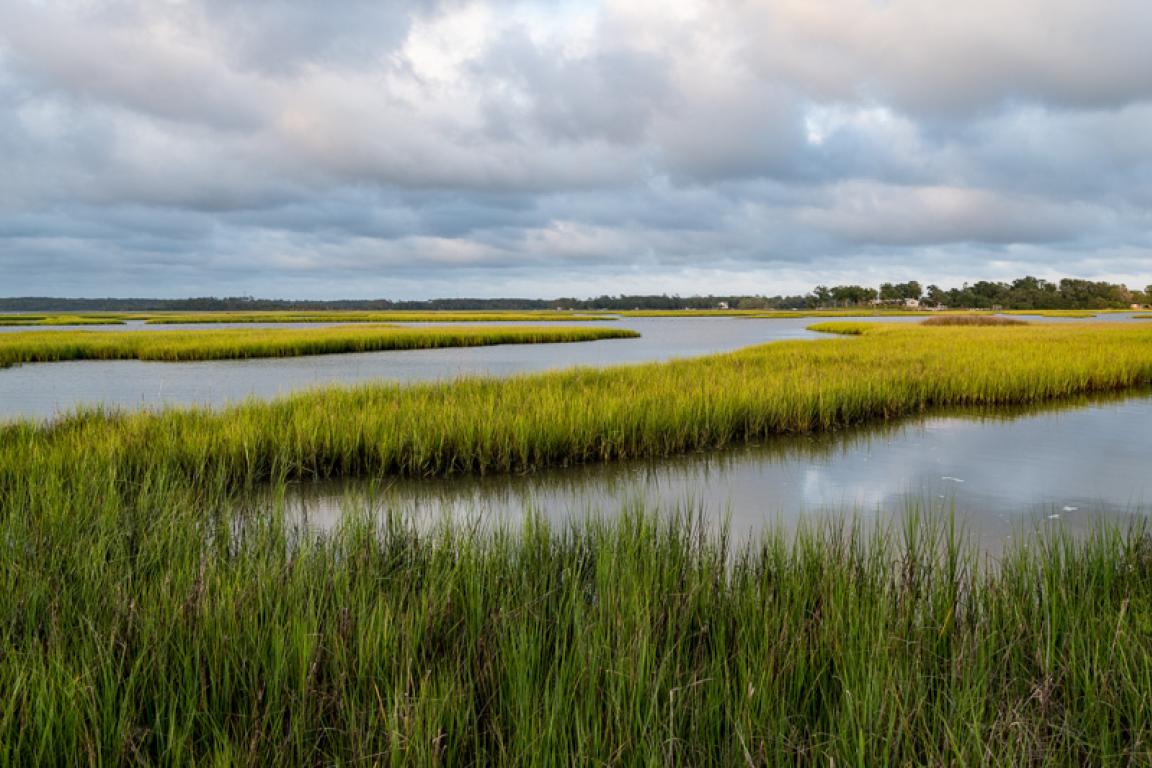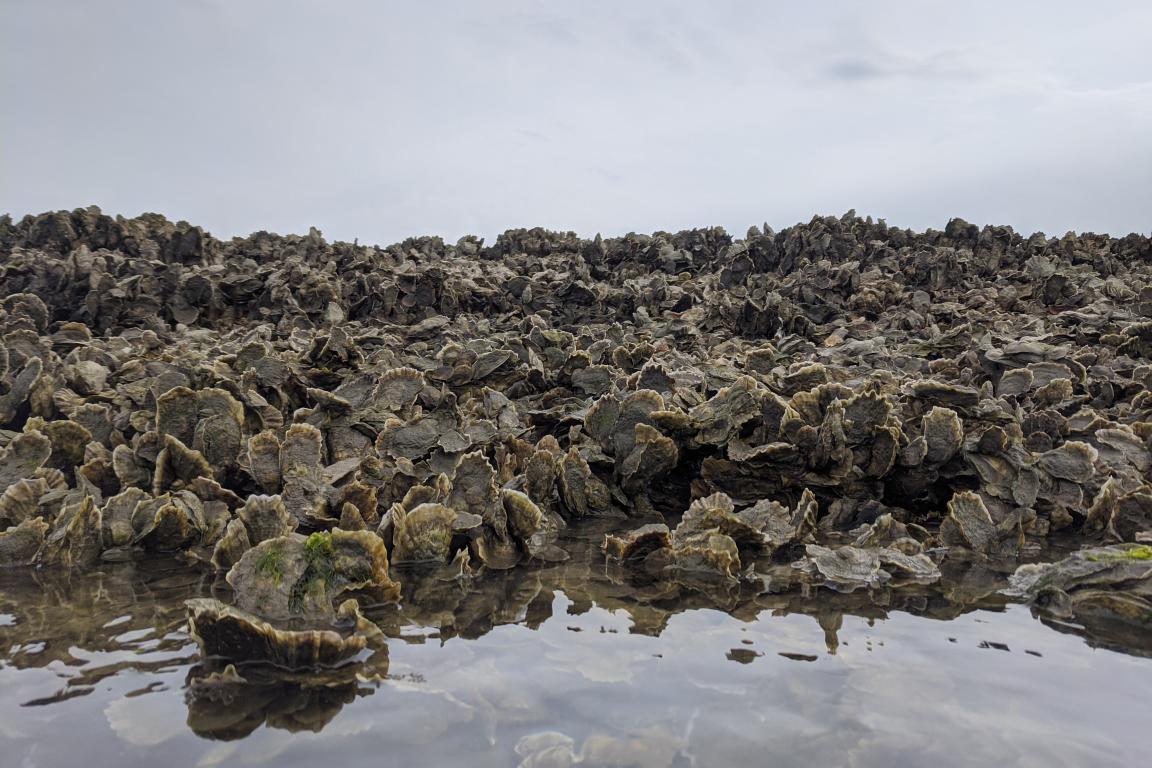A Plan to Protect
The overarching goal of the N.C. Coastal Habitat Protection Plan (CHPP) is long-term enhancement of coastal fisheries through habitat protection and enhancement efforts. The North Carolina Marine Fisheries, Environmental Management, and Coastal Resources Commissions unanimously adopted the North Carolina Coastal Habitat Protection Plan in December 2004. The document provides information on the habitats’ distribution and abundance, ecological functions and importance to fish production, status and trends, threats to the habitats, and includes recommendations to address threats. The Coastal Habitat Protection Plan is revised every five years to reflect changes in the status of habitat protection in North Carolina.
CHPP Process
Development and implementation of the Coastal Habitat Protection Plan is a N.C. Department of Environmental Quality effort. Staff from the department’s divisions with jurisdiction over marine fisheries, water quality and coastal management participate in plan development and implementation. This CHPP Team, consists of staff from the Division of Marine Fisheries, Division of Coastal Management, Division of Water Resources, and Division of Energy, Minerals, and Land Resources. Other agencies, such as Albemarle-Pamlico National Estuarine Partnership, Wildlife Resource Commission, Division of Energy, Mineral and Land Resources, Division of Mitigation Services, and Soil and Water Conservation District have participated on the CHPP Team. To implement recommendations of the plan, the CHPP team develops specific implementation actions.
The CHPP Steering Committee, which consists of two commissioners from the Marine Fisheries, Coastal Resources and Environmental Management commissions reviews and approves the plan, recommendations and implementation actions. They also meet regularly to discuss cross-cutting habitat and water quality issues and solutions and receive updates on CHPP progress. Members of the CHPP Steering Committee serve as liaisons to their full commissions to improve communication across commissions.
2021 Coastal Habitat Protection Plan Amendment
The NC Coastal Habitat Protection Plan 2021 Amendment was approved by the Marine Fisheries, Environmental Management, and Coastal Resources commissions in November 2021 and by the Department of Environmental Quality in December 2021. It was transmitted to the General Assembly in January 2022. The CHPP received overwhelming public support for implementation of the recommended actions. The 2016 CHPP Source Document will continue to serve as the background document for the amendment. View the documents below to learn more.
2021 CHPP Amendment Information
| Date | Meeting Materials |
|---|---|
| September 23, 2024 | Meeting Minutes |
| January 12, 2024 | Meeting Minutes |
| December 6, 2023 | Meeting Minutes |
| May 31, 2023 | Meeting Minutes |
| October 26, 2021 | Meeting Minutes |
Seventy participants from state and federal agencies, non-government organizations,and academia attended a series of three virtual technical workshops on coastal wetlands in August of 2020. Hosted by the CHPP Planning Team, the three workshops were convened to solicit input from coastal and palustrine wetland subject matter experts.The first workshop was titled Coastal Wetland Mappingand Monitoring (August 19th, 2020), the second was Coastal Wetland Threats and Conservation (August 25th, 2020), and the third was Coastal Wetland Restoration and Living Shorelines (August 26th, 2020). Information and input gathered from these workshops will be incorporated into the CHPP 2021 Amendment issue paper, Wetland Protection and Enhancement, with Focus on Nature-Based Methods.
CHPP Wetland Virtual Workshops Summary
| Coastal Wetland Mapping Virtual Workshop August 19, 2020 |
|
|---|---|
| Agenda | Presentation: Emerging Technologies |
| Presentation: Mapping and Evaluation | Presentation: Coastal Wetland Mapping and Monitoring |
| Coastal Wetland Threats and Conservation Virtual Workshop August 25, 2020 |
|
|---|---|
| Agenda | Presentation: N.C. Salt Marshes: Threats and Conservation Opportunities |
| Presentation: North Carolina’s Coastal Freshwater Wetlands:Caught in the Middle | |
| Coastal Wetland Restoration and Living Shorelines Virtual Workshop August 26, 2020 |
|
|---|---|
| Agenda | Presentation: Beneficial Use of Dredged Sediments for Coastal Marsh Restoration |
| Presentation: Increasing the Use of Living Shorelines for Wetlands Restoration | |
On March 4, 2020, seventy professionals from science, management, and conservation communities met at the NC Museum of Natural Sciences in Raleigh for the Clean Waters and SAV: Making the Connection technical workshop. The purpose of the workshop was to receive input for the 2021 NC Coastal Habitat Protection Plan (CHPP) regarding protection and restoration of submerged aquatic vegetation (SAV) through water quality improvements. The workshop included information on the scientific links between SAV health and water quality, processes used in other states to successfully restore SAV, and discussions on data needs and potential mechanisms to preserve and improve water quality for the protection and restoration of SAV. Attendees represented federal, state, and local governments, academic institutions, nonprofit organizations, and groups that operate to integrate those management, scientific, and public spheres.
Charlie Deaton
Division of Marine Fisheries
Charlie.Deaton@deq.nc.gov
CHPP Coordinator (Vacant)
Albemarle-Pamlico National Estuarine Partnership


